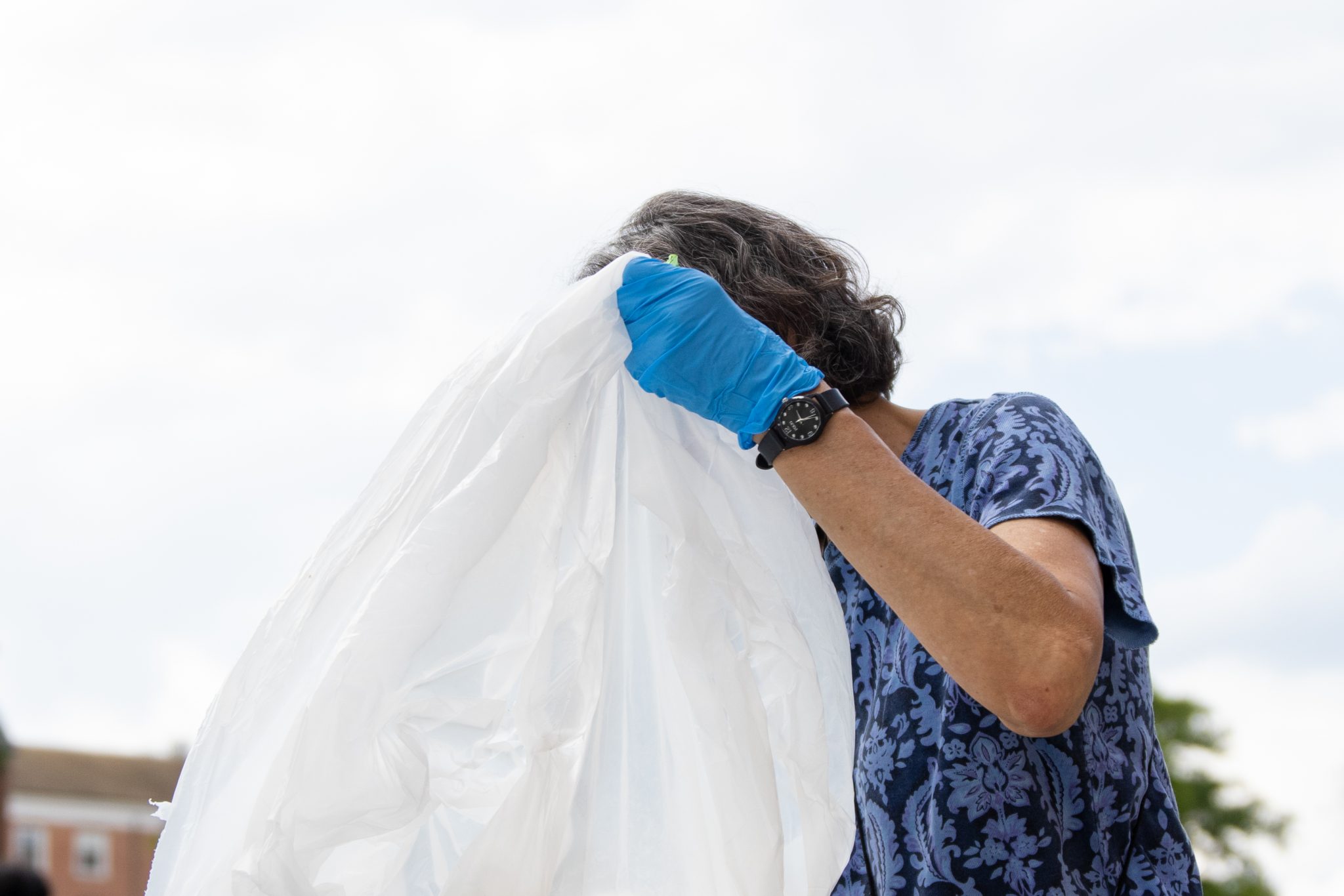University of Maryland volunteers sorted through and recorded data on waste from McKeldin Library at the library’s first waste audit on Friday.
Fifteen volunteers sorted through bags of waste from the garbage, recycling and compost dumpsters outside the library at the audit, which was hosted in partnership with Facilities Management. The volunteers resorted the waste to ensure it was placed in proper bins.
Volunteers also gathered information on how much waste is generated and properly sorted at McKeldin Library, said Julia Ethan, a sustainability graduate assistant for University Libraries.
The collected data can be used to improve recycling and compost efforts and to determine the next steps of reducing waste on campus, Ethan said.
“It’s really gonna give the libraries a good idea of what our footprint is looking like, how much waste we’re producing, what we’re doing with the waste, all that sort of stuff that we haven’t previously had that data on,” the public health and environmental health sciences graduate student said.
[UMD students celebrate the environment, sustainability at EarthFest]
McKeldin Library conducted the audit to fulfill a requirement for the Sustainable Library Certification Program — a national certification that ensures a library’s commitment to “environmental stewardship, economic feasibility and social equity,” according to the program’s website.
Since August, University Libraries has been working toward the certificate, which is awarded through the Sustainable Libraries Initiative, according to Ethan. University Libraries hopes to earn the certification by next fall, she said.
The libraries are working to achieve this university’s climate goals by taking other sustainable actions, such as creating a sustainability graduate assistant role and earning the Green Workspace certification, which promotes staff and faculty office sustainability practices.
Rell Trivits, a volunteer at the event, said the data obtained by the audit will create more awareness on campus about waste sorting.
“It’s so difficult. It’s actually so crazy how many different ways you can sort trash and recycling, and the more people know, the easier it is for all the people doing the hard work to actually sort,” the junior environmental science and policy major said.
Trivits volunteered because it was the library’s first waste audit, and to support her friend who helped run the event.
“I wanted to be a part of something that’s going to do some good for the campus,” she said. “It’s bringing people together to solve a problem that we’re going to be facing for a while to come.”
[UMD students display projects at Hack4Impact spring showcase]
Diego Rodriguez-Vivar, a freshman criminology and criminal justice major, volunteered at the audit for a College Park Scholars class and because he enjoys participating in community service events.
He said waste sorting education shows students how they can support the environment and campus.
“It’s a beginning to something more greater that can hopefully happen for many more generations to come,” he said.
Ojas Gupta, a freshman history and government and politics major, also volunteered at the audit for a class and because he participated in a waste sorting activity at Maryland Day on April 26.
He said waste sorting education aids in stopping the buildup of landfills and helps people know when to recycle or compost.
“[Waste sorting education] helps allow for future generations to enjoy the beauty of nature without us destroying it through just throwing away trash where it could have been composted or could have been recycled,” he said.



